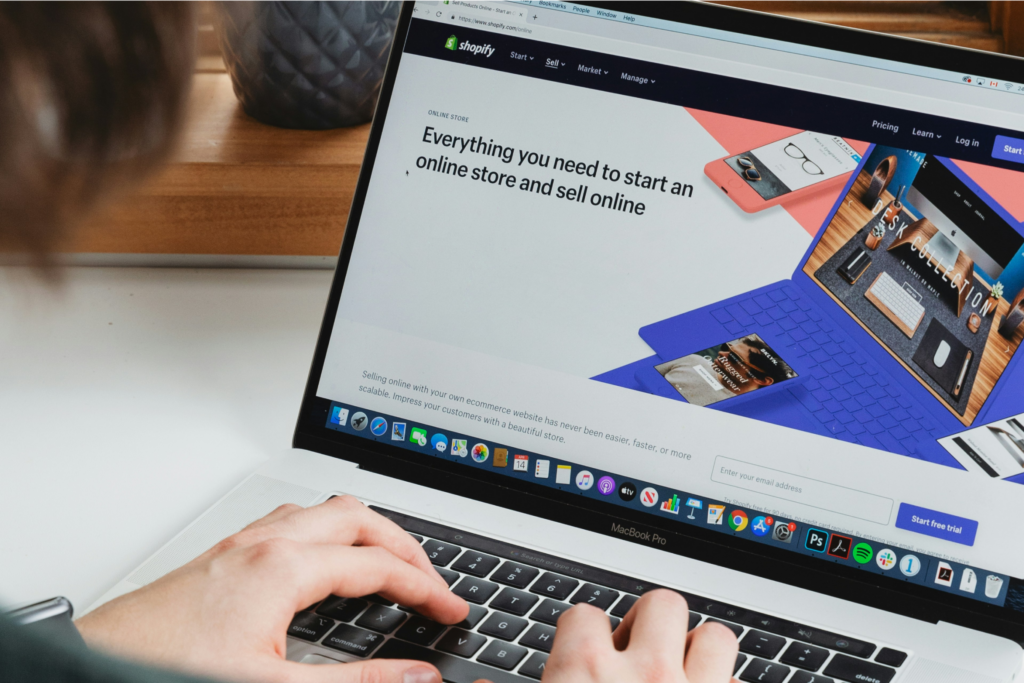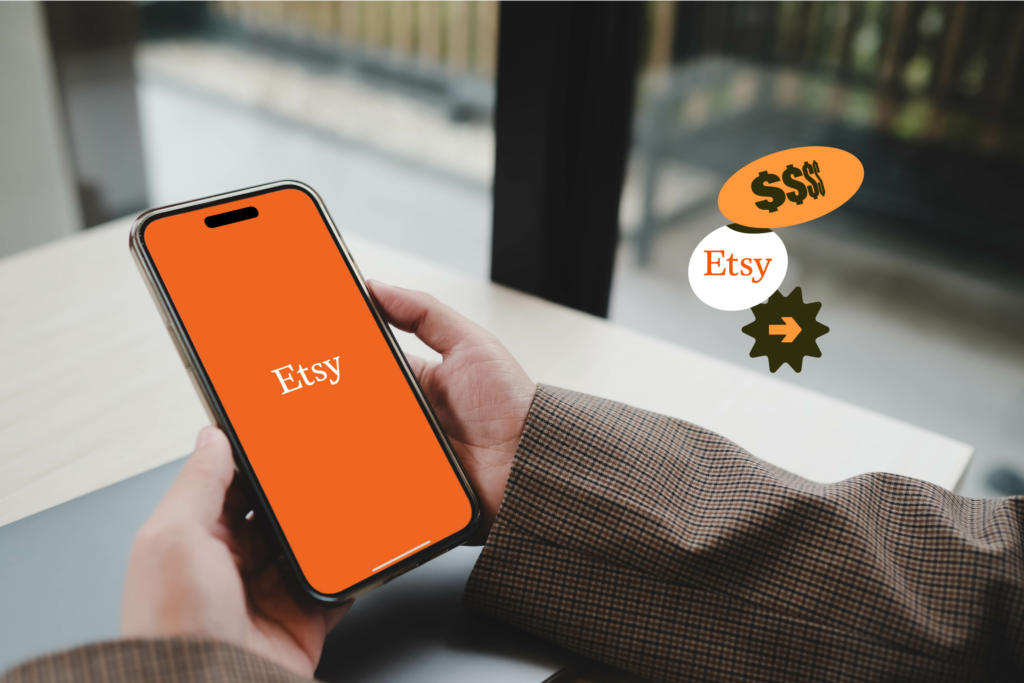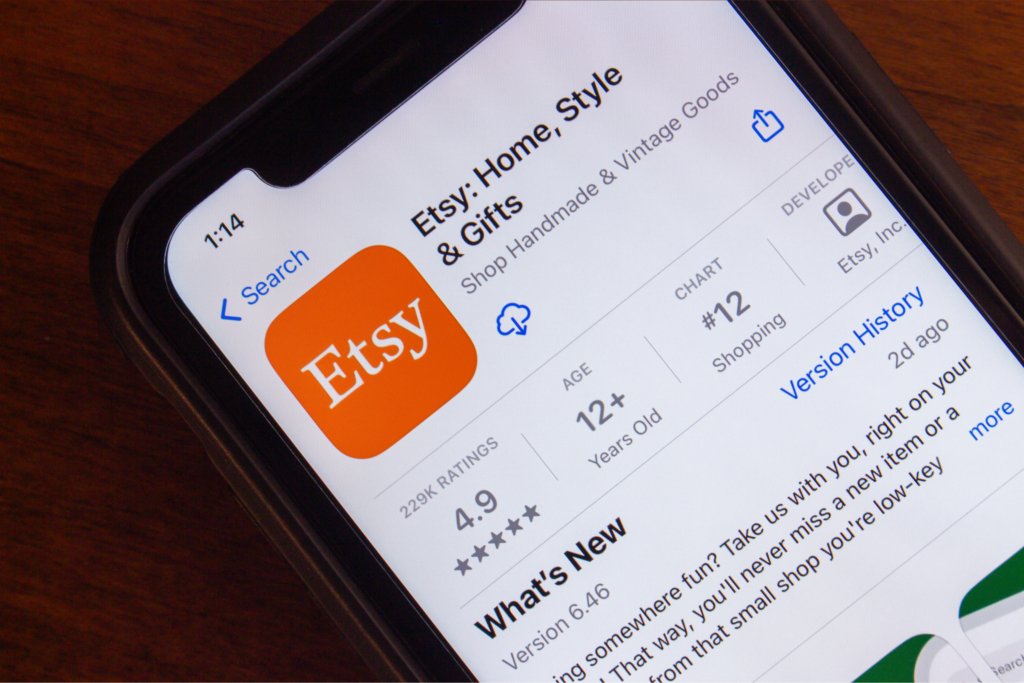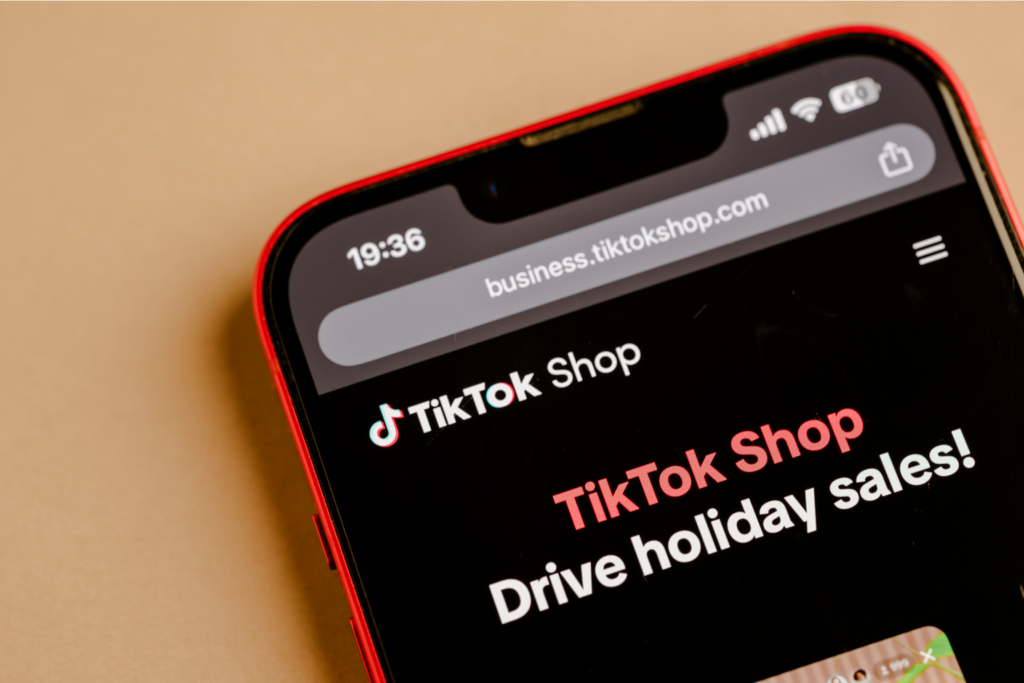Printify + your favorite platform = more sales!
In this guide, we’ll list the 8 best eCommerce platforms for launching your custom brand. Find out the key features to look for, and which tools best suit different types of online businesses, from small creators to growing eCommerce brands.
Top picks for 2026:
- Shopify – best all-around eCommerce platform for custom brands
- WooCommerce – themost customizable option for WordPress users
- Etsy – best marketplace for handmade and custom products
- BigCommerce – ideal for fast-scaling eCommerce businesses
- Squarespace – best for design-focused small brands
- Wix – the easiest website builder for new sellers
Whether you’re starting a small eCommerce store or scaling into multiple sales channels, these platforms offer the eCommerce features, integrations, and customization options needed to grow your brand.
Key factors to consider when choosing a platform
Choosing the right eCommerce platform isn’t just about cost – it’s about finding a system that helps you grow your brand sustainably. Here are the main factors to weigh:
- Branding and customization – Look for customizable themes or templates that help your eCommerce website reflect your brand identity. If you’re selling custom products online, advanced customization options like design flexibility, custom domains, and branding elements are necessary.
- Ease of use – Beginners prefer drag-and-drop builders like Wix or Squarespace. Meanwhile, advanced sellers want full customization options through WooCommerce or even custom development.
- Scalability – Scalable platforms handle increased sales volume, multiple channels, and growing eCommerce capabilities. Shopify and BigCommerce are built for this, with tools for inventory management, multichannel sales, and automation.
- Integrations and apps – Look for built-in payment gateways or strong ecosystems of third-party apps. Apps and integrations help with email marketing, fulfillment, and analytics. POD sellers should prioritize platforms that integrate with Printify, Printful, and other eCommerce tools.
- Cost and value – Compare free plans, basic plans, and premium tiers. Watch out for transaction fees and monthly fees that add up. Balance pricing with included eCommerce features.
- Hosting and maintenance – Some platforms handle everything for you, while others require your own hosting and ongoing updates. Be honest about how much time and control you want over your eCommerce site.
POD-friendly platforms for custom brands

Print on Demand (POD) lets you launch an eCommerce store without buying or storing inventory. It’s a major advantage for creators starting out on a budget. By integrating directly with POD suppliers, you can design products, sell online, and ship automatically. This allows you to focus on marketing your clothing brand and growing an audience.
Here are 2 of the most popular POD platforms that automate fulfillment so you can spend more time building your brand.
Printify
Printify helps creators turn design ideas into real products without upfront costs. It connects you with a global network of 90 Print Providers and supports 1,300 customizable products. Use Printify to unlock flexible sourcing, competitive pricing, and easy integration with Shopify, WooCommerce, and more.
| Pros | Cons |
|---|---|
| Product Catalog with 1,300 customizable products | No built-in storefront |
| Competitive pricing | Quality depends on partners |
| Custom branding options | Shipping costs vary |
| Easy-to-use platform | |
| Connects easily to Shopify, Etsy, WooCommerce, and more | |
| Wide supplier network |
Printful
Printful is a full-service print-on-demand solution for creators who want complete control over product quality and branding. Unlike marketplace-only POD tools, Printful owns its fulfillment centers – ensuring reliable global shipping, consistent quality, and fast turnaround times.
It also offers extensive custom branding options like labels, packaging inserts, and design tools, making it ideal for custom brands. With integrations across 22 sales channels (including Shopify, Etsy, and Wix), Printful fits easily into most eCommerce platform setups.
| Pros | Cons |
|---|---|
| Excellent product quality | Higher base price for some products |
| Over 400 products | Smaller catalog than other companies |
| Custom branding options | Can feel complex initially |
| Owned fulfillment facilities | |
| Fast global shipping | |
| 22 sales channel integrations |
Best all-around platforms for custom brands

A secure eCommerce platform with robust eCommerce features helps you turn a side hustle into an established eCommerce business.
Shopify, WooCommerce, and BigCommerce are the top eCommerce website builders for growing brands. They offer the flexibility to expand your product catalog, manage higher sales volume, and tap into tools like white-label clothing, dropshipping, and multichannel selling.
Shopify
Shopify is the most versatile eCommerce platform for building and scaling online stores. Its huge app ecosystem supports everything from POD to email marketing tools. Its user-friendly dashboard simplifies managing products, sales, and growth for entrepreneurs at any stage.
| Pros | Cons |
|---|---|
| User-friendly interface | Transaction fees apply |
| Built-in payment processing and multiple payment gateway options | Monthly fees add up |
| Free and premium themes | Reliant on paid apps |
| Massive app ecosystem | Can get pricey at scale |
| Mobile-optimized |
WooCommerce (WordPress)
WooCommerce gives WordPress users complete control over their online store. As an open-source eCommerce platform, it’s very customizable.
It’s perfect for sellers with a WordPress website who want ownership of their data, a tailored design, and flexible eCommerce features.
| Pros | Cons |
|---|---|
| Open-source | Steep learning curve |
| Highly customizable | Hosting setup required |
| Large plugin marketplace | Ongoing maintenance needed |
| Full control over design and data | Additional costs with growth |
| Cost-effective core | |
| Flexible payment gateways |
BigCommerce
BigCommerce is built for brands ready to scale. With native advanced features like SEO tools, multi-channel selling, and strong analytics, it reduces the need for extra apps. It’s best for growing businesses that expect high sales volumes and need enterprise-level reliability.
| Pros | Cons |
|---|---|
| Built-in scalability with less reliance on plugins | Limited free themes |
| Easy omnichannel selling | Pricing tied to sales volume |
| Built-in SEO tools | Less beginner-friendly |
| Robust integrations | |
| Handles large catalogs | |
| No transaction fees |
Best platforms for creators and small custom brands

Platforms like Etsy, Squarespace, and Wix give creators affordable ways to launch their own online store with sleek design tools, payment processing, and mobile-ready templates.
They’re especially useful if you’re wondering how to start a small clothing business from home – test products, build an audience, and grow at your own pace without heavy technical know-how.
Etsy
Etsy is one of the most popular eCommerce platforms for creators selling custom products online. With a built-in audience searching for handmade and unique items, it’s an easy entry point for online selling without building a full eCommerce website.
For new brands, Etsy simplifies testing ideas, early sales, and growing a customer base before investing in a standalone store.
| Pros | Cons |
|---|---|
| Built-in audience | Limited branding flexibility |
| Low upfront costs | High competition |
| Niche audience | Transaction and listing fees |
| Simple setup | Less control over branding |
| Supportive community | |
| Great for testing products |
Squarespace
Squarespace is the best eCommerce website builder for creators who want strong design and simplicity. It’s made for building a polished brand presence that doubles as a retail store. Ideal for artists, photographers, and small businesses who want to sell online without technical barriers.
| Pros | Cons |
|---|---|
| User-friendly drag-and-drop editor | Limited to basic eCommerce functionality |
| Integrated payment gateways (Stripe, PayPal) | Few third-party integrations |
| Mobile-optimized storefronts | No free plan |
| Built-in email campaigns | Restrictive template switching |
| Sleek templates and strong design focus |
Wix eCommerce
Wix eCommerce is the easiest website builder for beginners launching a custom brand. Its drag-and-drop editor, free plan, and bundled eCommerce website builder tools make it simple to set up a small eCommerce store and start online sales quickly.
Affordable and user-friendly, Wix is ideal for creators testing the waters before upgrading to a basic plan or scaling further.
| Pros | Cons |
|---|---|
| Intuitive drag-and-drop builder | Templates can’t be switched later |
| Affordable with a free plan and an upgradeable basic plan | Very few advanced eCommerce features |
| Customizable templates with built-in SEO tools | Limited payment gateway variety |
| Integrated marketing and email tools | Multichannel needs extra setup |
| Mobile optimization | |
| Supports social media integration |
FAQ
WooCommerce is the most customizable eCommerce platform. As an open source eCommerce platform, it offers plugins and advanced customization options for design, checkout, and data management. It’s ideal for WordPress users with some technical know-how.
Shopify is the best all-around platform for launching an eCommerce store. It balances ease of use and scalability. With a built-in payment gateway, it’s beginner-friendly yet powerful enough for growing custom brands.
The four main types of eCommerce business models are:
- B2C – business to consumer (typical online stores)
- B2B – business to business (bulk or wholesale eCommerce solutions)
- C2C – consumer to consumer (marketplaces like Etsy)
- C2B – consumer to business (freelancers or creators selling to brands)
Wix and Squarespace are best for beginners. Both have intuitive design tools, drag-and-drop editors, and built-in eCommerce features – perfect for small businesses and creators launching their first online store without coding.
Wix is the cheapest platform with a free plan, but has limitations. Etsy is another affordable option for online selling, but transaction fees can reduce margins as sales grow.
No coding knowledge is required for Shopify, Wix, and Squarespace. WooCommerce offers more flexibility but may require custom development or extra technical knowledge.
Final thoughts: Choosing the right eCommerce platform
There’s no single best eCommerce platform for every seller. The right choice depends on your brand’s stage, budget, and how much control you want over features like customization and inventory management.
- Starters: Platforms like Etsy, Squarespace, or Wix are perfect for testing ideas quickly, keeping costs low, and learning what resonates with your audience.
- Growing brands: Shopify and WooCommerce shine when you’re ready for scalability, deeper branding, and tools that help you turn a side hustle into a full eCommerce business.
- Enterprise-ready sellers: If you’re scaling into high sales volume and need advanced eCommerce capabilities, BigCommerce provides a built-in foundation without relying on endless apps.
The best platform is the one that fits your growth vision – helping you build, scale, and manage your brand without limits.












